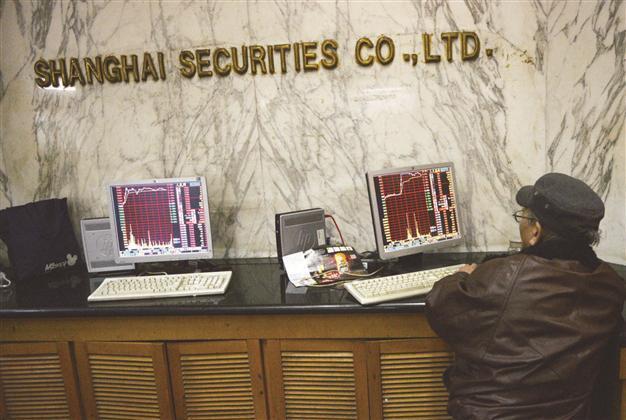Pressed Chinese firms delay IPOs
SHANGHAI - Reuters

Five Chinese firms announced that they were delaying their planned IPOs after the China Securities Regulatory Commission said overnight it would strengthen supervision of new listings. AFP photo
Five Chinese firms announced on Jan. 13 that they had postponed their initial public offerings (IPOs) after China’s stock regulator said overnight it would strengthen supervision of new listings.The announcements follow a similar statement by drug maker Aosaikang on Jan. 10 which sources told Reuters was due to regulatory pressure, although the China Securities Regulatory Commission (CSRC) denied it. The five companies are NetPosa Technologies, Hebei Huijin Electromechanical, Nsfocus Information Technology, Beijing Forever Technology and Ciming Health Checkup Management Group.
“In line with the CSRC statement on Jan. 12, the issuer and lead underwriters have decided to adjust the timetable for the company’s planned share issuance,” Ciming Health said in its announcement, without giving a new timeframe for the issue. The other four firms issued similar statements.
The CSRC said on Jan. 12 that any companies which set their IPO price to earnings (PE) ratios higher than the ratios of industrial peers in the secondary market must publish repeated risk warnings before they open subscriptions to retail investors, a move that will effectively reduce IPO prices and slow the progress of new issues.
Analysts said regulators were also likely bothered by the company’s plans to dedicate most of the IPO to letting major stakeholders sell off their existing shares, instead of issuing new ones. The six suspensions comprise around one fifth of all the companies that have filed to list in Shanghai and Shenzhen since the IPO gates were lowered in early January. This marks an inauspicious beginning to the resumption of IPOs in China, which regulators hoped would help nearly 750 companies, stuck in the queue since listings were frozen in late 2012, find sources of fresh funds outside of the already overburdened banking system. Ernst & Young has estimated these firms will raise around $33.05 billion on the Chinese bourses in 2014.
Major setback
Initial signs were promising, with the first two IPOs attracting massive investor interest during the subscription process.
In wider terms the suspensions mark a setback for reformers in Beijing who have committed to giving markets a “decisive” role in the next phase of Chinese economic development. The aborted listings highlight the challenges the government faces in liberalizing a market still dominated by companies unused to the requirements of transparent corporate governance.
The China Securities Regulatory Commission (CSRC) has said it will loosen its grip on the IPO process, changing its current approval-based system - where it decides who gets to list and who does not - to a registration-based system similar to the one used in the United States. This would diminish opportunities for corruption, but it also would limit regulators’ ability to protect China’s retail stock investors from unethical company managers. In November, Xiao Gang, chairman of the CSRC, said liberalization plans for the IPO market did not imply a free-for-all. “This does not mean that the CSRC will sit idly, which will lead to more junk stocks,” he said. Chinese equity indexes have been some of the world’s worst performers in recent years, with many domestic investors souring on Chinese stocks in general given the market’s reputation for insider trading and price manipulation.
















